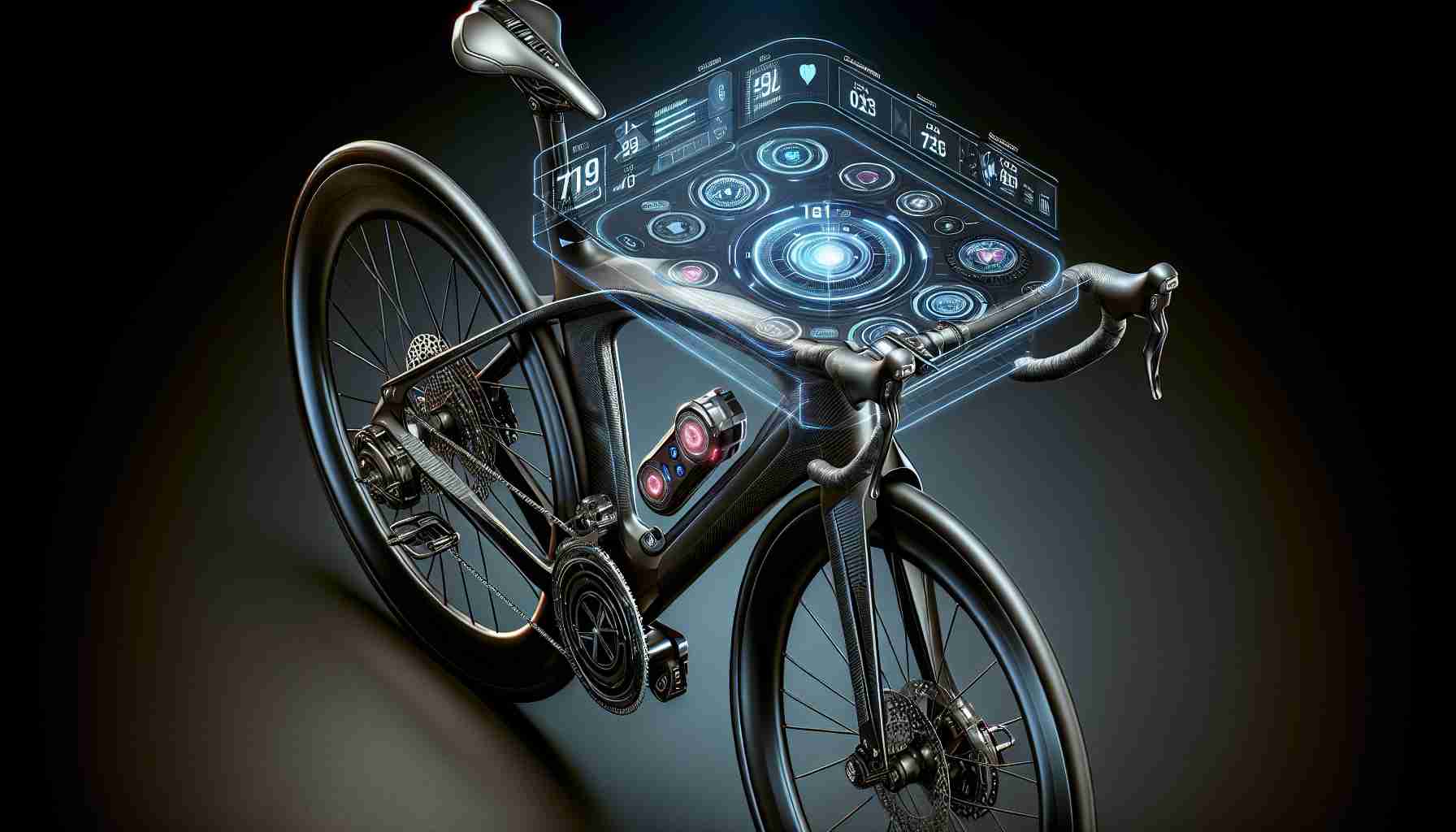The world of cycling is about to witness a groundbreaking innovation that blends precision and functionality. Introducing the Flitedeck—a cockpit specifically designed for bicycles, taking cues from the features of automobiles.
The Flitedeck is the brainchild of a German startup founded by Sabrina Fischer and Matthias Huber in 2019. This innovative device aims to transform road bikes, turning handlebars into sophisticated digital command centers. It features a large, user-friendly touchscreen equipped with various vital functions and information displays.
This high-tech cockpit boasts an array of features, including navigation, performance monitoring, and even a built-in bell. Riders can expect to see readings on metrics such as heart rate, caloric expenditure, battery life, and current speed. Additional capabilities include graphical altitude tracking and a timer for performance stats. A radar detection system for nearby pedestrians and vehicles is also anticipated.
The impressive device will connect to various sensors, ensuring seamless data sync with health apps and other technologies. With a weight of around 800 grams and an expected battery life of 20 to 30 hours, this cockpit is designed for optimal performance.
Pre-orders are set to launch in February, with an introductory price of around €1,599. Production will kick off in Germany, targeting a release date in 2026. As cycling technology advances, the Flitedeck is sure to elevate the biking experience for enthusiasts everywhere.
Transforming Cycling: The Flitedeck’s Broader Impact
The emergence of the Flitedeck signifies more than just a technological leap for cyclists; it heralds a shift in the societal perception of cycling as a prominent mode of transportation. As urban areas grapple with congestion and pollution, advanced biking technologies serve as a catalyst for increased adoption of bicycles over cars. This change not only promotes a healthier lifestyle but can also alleviate urban pressure by encouraging sustainable commuting options. A 2021 study from the European Cycling Federation found that increasing cycling infrastructure could reduce urban traffic by up to 10%.
Furthermore, the Flitedeck’s integration of digital features might attract a demographic that has historically overlooked cycling—those accustomed to smart technologies in everyday life. As this trend blooms, we may see a cultural shift where cycling becomes a young, vibrant part of technological identity, akin to owning the latest high-end smartphone.
However, these digital advances are not without potential repercussions. The environmental impact of increased cycling—reduced emissions, less road wear, and decreased dependence on fossil fuels—could be significant. Yet, if cycling gadgets result in higher consumption and waste, issues of sustainability must be carefully considered. As the cycling industry evolves, monitoring how products like the Flitedeck influence consumer behavior is critical for balancing innovation and environmental responsibility.
In a broader sense, advances like the Flitedeck may foreshadow a future where connectivity becomes intrinsic to physical activities, establishing a new intersection of health, technology, and environmental consciousness.
Revolutionizing Cycling: Meet the Flitedeck, the Ultimate Smart Cockpit
Introduction
The cycling industry is on the brink of a technological revolution with the introduction of Flitedeck, a cutting-edge cockpit designed specifically for bicycles. Developed by a forward-thinking German startup founded by Sabrina Fischer and Matthias Huber, this innovation aims to redefine the way cyclists interact with their bikes.
Key Features of Flitedeck
The Flitedeck is more than just a display; it transforms handlebars into sophisticated command centers that integrate essential metrics and functionalities into one seamless interface. Here are some of its standout features:
– Touchscreen Interface: A large, touch-friendly display gives riders quick access to critical information.
– Navigation System: Integrated GPS provides turn-by-turn directions for hassle-free cycling, whether on urban trails or remote paths.
– Health Monitoring: Tracks metrics including heart rate, caloric expenditure, and speed to provide a comprehensive overview of performance.
– Altitude Tracking: Graphical representation of altitude gain helps cyclists understand their climbing efforts.
– Radar Detection: Advanced radar technology detects nearby pedestrians and vehicles, enhancing safety on the road.
– Smart Notifications: Connects to smartphones and other devices, allowing for notifications without needing to stop cycling.
Specifications
– Weight: Approximately 800 grams, ensuring that it is lightweight and does not add excessive bulk to a bicycle.
– Battery Life: Promises between 20 to 30 hours on a single charge, making it suitable for long rides and tours.
– Connectivity: Interfaces with various sensors and is compatible with health apps, ensuring cyclists can track their performance and health metrics.
Pricing and Availability
The Flitedeck is set to launch with pre-orders starting in February at an introductory price of €1,599. Production will take place in Germany, with plans for a full market release expected in 2026. This pricing positions it as a premium offering in the cycling accessories market.
Pros and Cons
Pros:
– Enhanced safety features through radar detection.
– Comprehensive health and performance tracking.
– High-quality user interface with a responsive touchscreen.
– Long battery life ideal for extended rides.
Cons:
– Premium pricing may deter some potential customers.
– Dependence on technology may not appeal to all cyclists.
– Initial availability may be limited as production ramps up.
Insights and Market Trends
With the growing trend of smart technology integration into sports and fitness, the Flitedeck aligns perfectly with consumer demand for advanced, multi-functional devices. As cyclists seek more data and guidance, innovations like the Flitedeck can shape the future landscape of biking experiences.
Conclusion
The Flitedeck represents a significant leap in the usability and functionality of cycling equipment. By merging digital elements with traditional riding, this smart cockpit is poised to enhance the cycling experience, making it more interactive and informative.
For further insights and updates about revolutionary cycling gear, visit the official site at Flitedeck.
